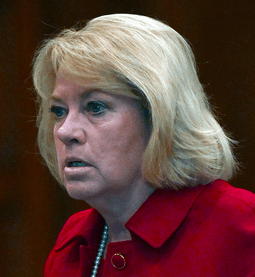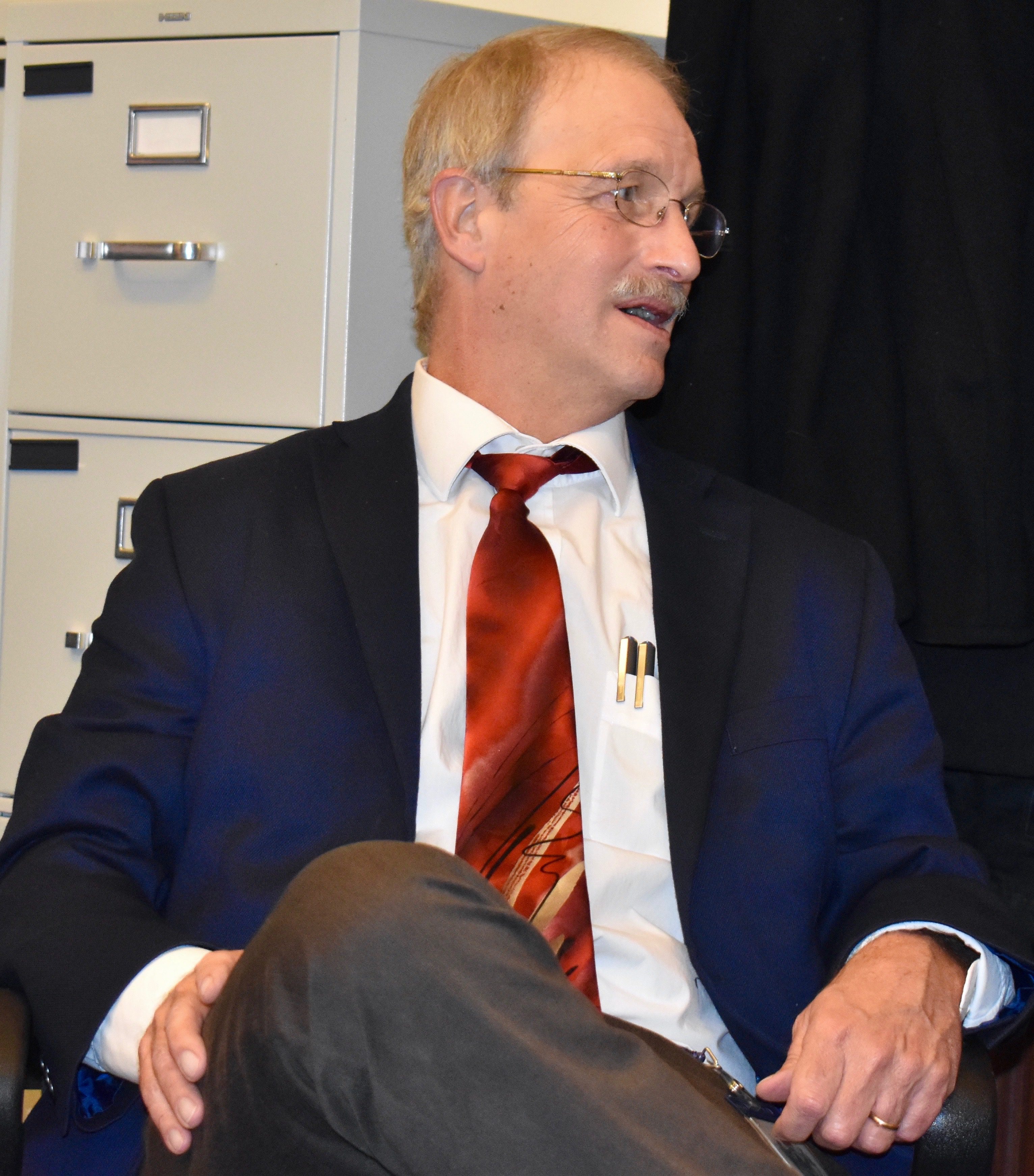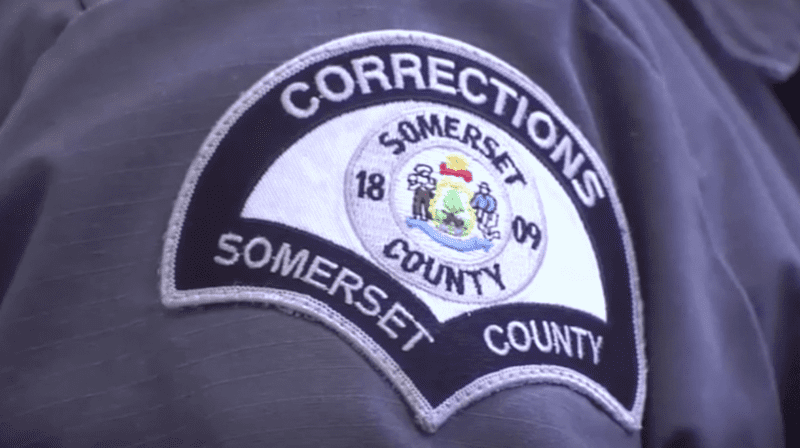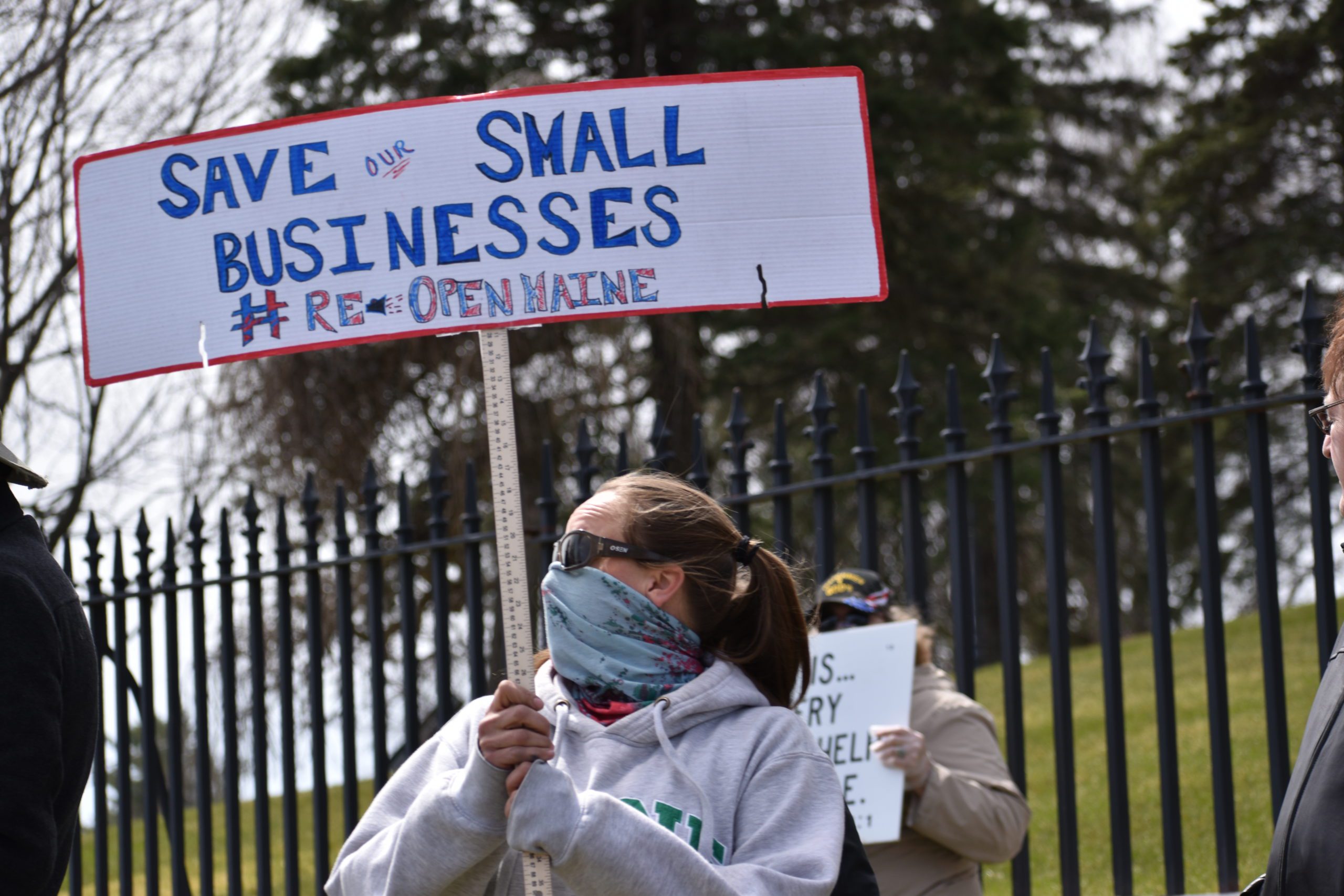The release of protected phone calls between a Maine attorney and his client housed at the Somerset County Jail have sparked concerns about inmates’ civil rights, and members of the state public defense commission say this could be the worst breach in attorney-client privilege seen in the state.
Deputy Attorney General Lisa Marchese said her office erroneously received recordings of phone calls between attorney Jeremy Pratt and his detained client, who has an open case with her office. The calls were “innocuous in nature” but their release to prosecutors has potential implications for his defendant’s right to counsel, Pratt said.
Jails and prisons suspended in-person visits in March to try to stop inmates from becoming infected with the coronavirus, which causes the respiratory illness COVID-19. This has made attorneys reliant on phone and video calls to communicate with detained clients.

“This is incredibly serious and really awful,” said Roger Katz, an Augusta attorney currently serving on Maine’s public defense commission. “Hearing this report, this is obviously completely unacceptable and one of the worst things I’ve ever heard about a breach of attorney-client privilege in Maine, in any setting.”
Communications between an attorney and client are confidential and protected under what is known as attorney-client privilege. Inmates of Somerset County Jail provide their attorney’s phone number to jail officials so recordings of those calls by the jail’s phone vendor, GTL — marketed as correction’s “one-stop source for integrated technology solutions” — are not distributed, said Somerset County Sheriff Dale Lancaster.
“When we are requested to do a download of phone conversations, those (lawyer) numbers are blocked and people don’t have access to them,” Lancaster said.
It is standard practice in criminal cases for a prosecutor to request inmate calls made from the jail, said Marchese, who is the criminal division chief at the Office of the Attorney General. The calls between Pratt and his client were provided in error to her office, and the mistake was only discovered as the calls were being reviewed during trial preparation.
Hearing this report, this is obviously completely unacceptable and one of the worst things I’ve ever heard about a breach of attorney-client privilege in Maine, in any setting.”
— Roger Katz, member of the Maine Commission on Indigent Legal Services
“The prosecutor received a large batch of phone calls and was listening to those calls as is routinely done,” Marchese said by email on Wednesday. “While reviewing the calls, he recognized the voice of the defense attorney, whom he knew. Recognizing that he had been provided a call in error, the prosecutor immediately stopped listening to the recording and notified the defense attorney.”
A spokesman with the attorney general’s office said it had “no further comment” on the timeline of when the recordings arrived, were discovered and Pratt was notified.
The Maine Rules of Professional Conduct say lawyers who receive any inadvertent disclosure of confidential or privileged information must stop, notify the attorney and return or destroy the materials. The Board of Overseers of the Bar — the state body that governs attorney conduct — did not respond in time for publication to questions about whether the prosecutor would be required to report the incident.
Somerset County Jail was also unaware that it had released calls protected by attorney-client privilege until the Maine Monitor contacted jail administrators and the sheriff on Wednesday. A review that same day revealed the inmate had not provided Pratt’s phone number to the jail, Lancaster said. Pratt’s phone number has since been added to the inmate’s list.
“This was an unfortunate error. The inmate did not give us that number,” Lancaster said. “The right to counsel is a part of the foundation of this country — of the legal system. That communication and right is extremely important.”

The jail has decided to reopen to in-person attorney meetings, Lancaster said. Lawyers will be screened with a thermometer and be separated from their client by a barrier to minimize the risk of the spread of the coronavirus.
The attorney general’s office plans to proceed with the case, and Pratt was working to secure a deal for his client on Wednesday.
“I don’t think this was any coordinated effort by the Attorney General’s office,” Pratt said.
Knowing of at least one other similar incident, however, Pratt sent out a mass email to the members of the Maine Association of Criminal Defense Lawyers (MACDL) to ask if other attorneys were aware of the recording and distribution of their private calls with clients in Maine jails.
At least one Maine attorney has since come forward and described a similar experience with the Somerset County Jail.
Civil rights on the line
The release of these attorneys’ phone calls may have crossed a bright red line.
A pillar of the Sixth Amendment, which protects a defendant’s right to counsel, is the right to unencumbered communication between a lawyer and a client, said Zach Heiden, legal director for the American Civil Liberties Union of Maine.
“Any interference by the government between an attorney and a client in a criminal matter raises serious constitutional questions,” Heiden said.

The release of privileged phone calls was “very concerning” to the advocacy organization, especially in light of the coronavirus pandemic that has made it impossible for lawyers to visit clients in jail to discuss confidential information about their case.
The ACLU has lobbied nationally and in Maine to stop “exploitive” contracts between private phone companies and government detention facilities, Heiden said. People give up some of their privacy rights in jail, but they should still maintain a basic right to communicate privately about family or medical matters, he said. And, the right to communicate confidentially with a lawyer is a constitutional one.
“If attorney calls are being recorded, it does raise the risk of this happening more often,” Heiden said.
Maine defense attorney and former chairman of multiple American Bar Association committees on professional discipline and conduct, Bob Cummins, was shocked by the implication of phone calls between attorneys and clients being recorded, let alone distributed.
“No communication between a lawyer and an incarcerated client should be recorded. It’s no answer to say, ‘If you’re on a list we won’t download it,” Cummins said.
Any interference by the government between an attorney and a client in a criminal matter raises serious constitutional questions.”
— Zach Heiden, legal director for the American Civil Liberties Union of Maine
Cummins is a member of the Maine Commission on Indigent Legal Services, which is where the “breach” of attorney-client privilege was first disclosed publicly during a telephone conference on Tuesday. The commission ensures defendants who are too poor to hire their own lawyer receive a legal defense when there is a risk of jail or termination of parental rights.
“This is probably as bad a breach of the obligations of prosecutors that I’ve heard in a long time. It’s kind of mind-blowing, actually,” Cummins said during the meeting on Tuesday.
Pratt’s email was forwarded to the commission’s executive and deputy directors on April 23 by Robert LeBrasseur, a defense lawyer and the only non-voting member of the eight-person commission. Executive Director John Pelletier sent a similar email to MCILS attorneys on April 27.
Pelletier did not know how many calls between attorneys and clients may have been recorded at the Somerset County Jail.

Pelletier had also not contacted the presiding judge or the attorney general’s office about the leaked phone calls as of Tuesday. Heiden said the lack of follow-up, more than a week after being made aware of the situation, by the state agency in charge of ensuring defendants’ rights was troubling.
“That’s troubling, because we don’t have a public defender system in Maine,” Heiden said. “This is something that the state public defender would take responsibility for.”
Members of the commission were already concerned about the privacy and security of communications between clients and attorneys during in-custody arraignments — a defendant’s first appearance in front of a judge. The lawyer would often discuss a client’s case in a jail holding area within earshot of other defendants and guards.
The coronavirus has only exacerbated the situation, Katz said. Due to physical distancing requirements during the pandemic, lawyers were moved out of the jail holding areas. But attorney’s remote, video conversations with clients may still be overheard.
Pelletier planned to survey all county jail administrators on attorney communications with clients still in jail during the pandemic. Depending on the responses, the commission could call an emergency meeting.
“If lawyers can’t communicate in a confidential way, then clients are being denied counsel — and that’s unacceptable,” Heiden said.




